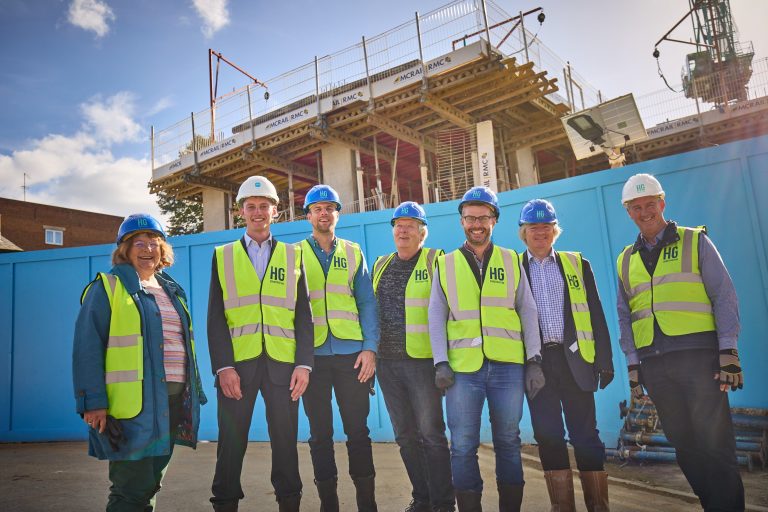Barnet Homes: Unique Amongst ALMOs (The Following is a Promoted Article) Barnet Homes is, in the view of Assistant Director of Operations Elliott Sweetman, quite unusual if not unique amongst ALMOs. That’s partly because it’s a subsidiary of The Barnet Group, a local authority trading company set up to run various organisations and win new business for Barnet Council. “In 2012 we took Your Choice (Barnet) across from the Council, a specialist care and support function providing services to adults with a range of physical and learning disabilities,” recalls Elliott. “The council has also transferred other housing interests to us, such as its homelessness services. The intention was to improve the efficiency of services and make them financially viable where appropriate. The council wants us to be enterprising and transform under-performing operations into highly performing services.” Synergies and Efficiencies Barnet Homes was established in April 2004 and, like most ALMOs, its primary purpose was to deliver the Decent Homes Programme. Once completed in 2011, the new group structure came into being and, as Elliott explains, efficiencies have resulted: “There are several synergies between the homelessness service and other elements of landlord services that Barnet Homes delivers. “For instance, the voids and lettings function transferred into the homelessness department because it made sense for nominations, appeals and other departments to sit within the Housing Options service. The repairs and major refurbishment functions provide services to various homeless services clients and various overheads are spread across The Barnet Group.” The organisation’s stock comprises around 15,000 properties, 11,000 tenancies and 4,000 leaseholds, which range from Victorian buildings to some constructed in the last development programmes of the early 1990s. Additionally, there are some 2,000 temporary accommodation units that Barnet Homes manages the tenancies for but doesn’t own. Maintaining Standards The Decent Homes programme saw a £185 million investment, delivering over 5,000 new kitchens, new windows for 4,000 units, 2,300 bathrooms, over 6,000 electrical upgrades and rewires, 2,300 heating systems and boilers, and 260 new roofs, many on blocks of flats with various other types of remodelling work. Since it completed, the focus has been, says Elliott, on maintaining homes to the same standard: “Using information from our stock database and on-site verification surveys, we continue to run a programme of kitchen, bathroom and window replacement when components reach the end of their useful life. “In addition, we’re ensuring M&E services remain fit for purpose and comply with current standards. We’re currently investing in replacing boilers, heating systems and carrying out rewires for homes that didn’t receive them during Decent Homes. In many respects, it’s a continuation of that investment.” The main emphasis of Decent Homes was on the internal condition of dwellings and the safety of communal areas. Investment now is going into other areas that weren’t covered, such as estate and environmental works, remodelling car parks and pathways. There’s been much work on water services, damp and condensation, lift refurbishment and a large electrical rising main programme. External repairs and redecoration programmes continue, the latter incorporating dementia-friendly design principles as a result of consultation with residents. Community Relationships Resident involvement and consultation are major features of the way Barnet Homes operates. “We have a strong local presence and work hard to maintain good community relationships,” states Elliott. “We have really strong relationships with existing residents, have high satisfaction levels and they trust us in providing this function. We understand the issues faced by those living within the estates, consulting them and our own officers about problems such as anti-social behaviour to ensure we design improvements or design out issues.” The emphasis on involving residents helped Barnet Homes achieve a score of 81% on a recent tenant satisfaction survey, putting it in the top quartile within the industry. It also enabled it to be recognised as a Top Twenty Landlord out of more than 1,700 UK social landlords. Resident involvement was to the fore when Barnet Homes used the end of Decent Homes as an opportunity to look at how it delivered asset management. A major procurement exercise resulted in most contracts being awarded on ten-year terms and, as Elliott emphasises, residents played a major role in contractor selection: “To make sure they had a meaningful involvement in that process, we involved them in scoping at the very outset and residents had a say in what they liked about contractors and what they wanted to improve. Much of what we put in the tender for contractor requirements in less technical areas was driven by what our customers told us. Continuing Involvement “We kept their involvement through that procurement process so they were on groups evaluating tenders, they went on site visits for short-listed contractors and sat in on interviews. They were involved in mobilisation processes for our biggest contracts and those more relevant to residents. We have a Performance Advisory Group (PAG) made up of customers, both tenants and leaseholders, whose role is to hold us to account for what we do and the services we provide. “Members from PAG attend monthly contract management meetings and higher level contracts core group meetings. They feed back to the wider PAG group and the board on their involvement and how managing the contract and contract performance goes. A big part of what we do is ensuring the customer is represented and that ensures we can check that what we’re providing is what they actually want.” The checking extends to an annual benchmarking exercise that puts the service in the top quartile of London boroughs for resident satisfaction and cost. There’s also KPI incentivisation linking contractor payments to performance, although Elliott believes the arrangement’s success is due to other factors: “A key to it is the relationship between teams and how they work together to ensure the service runs in the best way. The contractors are based in our office so, from a practical perspective, we work as a single team.” Apprenticeship Programme A factor in awarding contracts was a wish to retain spend within






